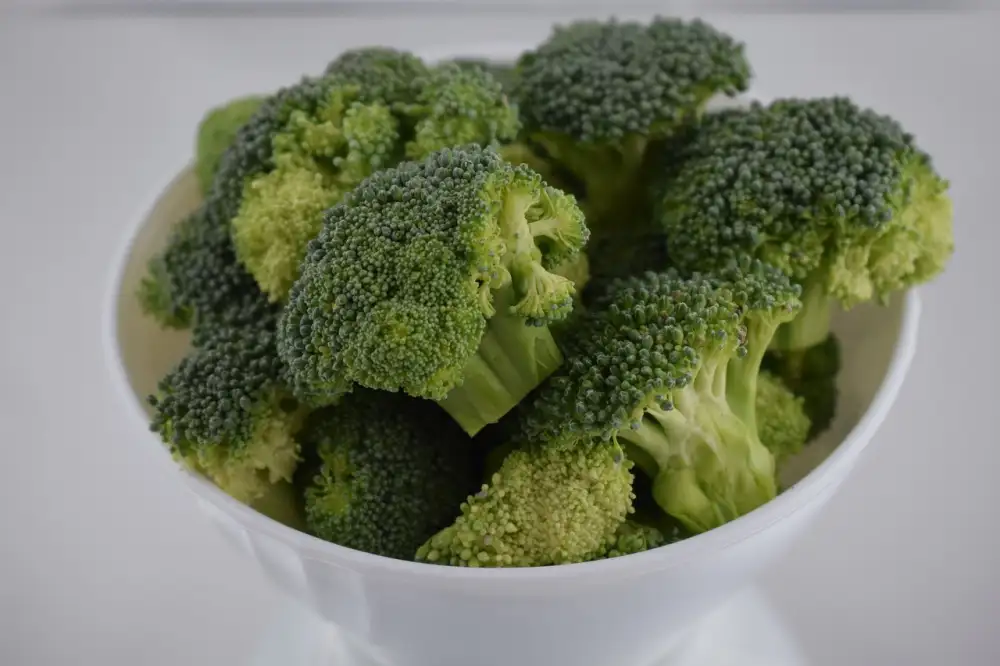Trim Down with Tasty and Nutritious Weight Loss Meals: Your Guide to Healthy Eating

- Importance of a Balanced Diet for Weight Loss
- Incorporating Lean Proteins in Your Meals
- Including Fiber-rich Foods for Satiety and Digestive Health
- Choosing Nutrient-dense Fruits and Vegetables
- Opting for Whole Grains for Sustained Energy
- Healthy Fats for Flavor and Satiety
- Portion Control and Mindful Eating
- Meal Prep Tips for Weight Loss Success
When it comes to weight loss, finding the right balance between deliciousness and nutrition is key. Gone are the days of bland and boring diet food - now, healthy meals can be both satisfying and flavorful. Whether you're just starting your weight loss journey or looking for new ideas to spice up your meals, this article will provide you with 10 delicious and nutritious recipes that will help kickstart your weight loss goals. Get ready to indulge in mouthwatering dishes that will nourish your body and support your weight loss efforts.
Importance of a Balanced Diet for Weight Loss
A balanced diet is crucial for successful weight loss. It provides the body with essential nutrients while promoting a calorie deficit. By including a variety of food groups, such as lean proteins, whole grains, fruits, vegetables, and healthy fats, you can ensure that your body receives all the necessary vitamins and minerals. Additionally, a balanced diet helps to regulate blood sugar levels and keeps you feeling satisfied throughout the day. Remember, weight loss is not just about cutting calories; it's about nourishing your body with the right foods for optimal health and sustainable results.
Incorporating Lean Proteins in Your Meals
Incorporating lean proteins in your meals is essential for weight loss. Protein helps to build and repair tissues, boost metabolism, and keep you feeling full for longer periods of time. Include sources like skinless chicken breast, turkey, fish, tofu, beans, and lentils in your diet. These options are low in fat and high in protein, making them perfect choices for a healthy weight loss meal. Remember to choose cooking methods that don't add unnecessary fats or calories, such as grilling or baking instead of frying.
Including Fiber-rich Foods for Satiety and Digestive Health
Including fiber-rich foods in your weight loss meals is essential for promoting satiety and maintaining digestive health. Fiber adds bulk to your meals, making you feel fuller for longer periods of time. It also helps regulate bowel movements and prevents constipation. Incorporate foods such as whole grains, legumes, fruits, and vegetables into your diet to increase your fiber intake. These foods not only provide essential nutrients but also help control hunger cravings and promote a healthy digestive system.
Choosing Nutrient-dense Fruits and Vegetables
When it comes to weight loss, choosing nutrient-dense fruits and vegetables is essential. These colorful foods are packed with vitamins, minerals, and antioxidants that support overall health and help you feel satisfied. Opt for a variety of fruits like berries, citrus fruits, and apples, which are low in calories but high in fiber. Include vegetables like leafy greens, broccoli, and bell peppers, which provide essential nutrients while keeping you full. By incorporating these nutrient-rich options into your meals, you can enjoy delicious flavors while promoting weight loss.
Opting for Whole Grains for Sustained Energy
When it comes to weight loss, choosing the right carbohydrates is crucial. Whole grains are a great option as they provide sustained energy and keep you feeling fuller for longer. Unlike refined grains, such as white bread and pasta, whole grains retain their natural fiber and nutrients. This means they are digested more slowly, preventing blood sugar spikes and crashes. Incorporate whole grains like quinoa, brown rice, oats, and whole wheat bread into your meals for a healthy dose of complex carbohydrates that will fuel your body throughout the day.
Healthy Fats for Flavor and Satiety
When it comes to weight loss, many people tend to avoid fats altogether. However, not all fats are created equal. Healthy fats are an essential part of a balanced diet and can actually aid in weight loss. These fats provide flavor, satiety, and important nutrients.
Including sources of healthy fats such as avocados, nuts, seeds, and olive oil in your meals can help you feel satisfied and prevent overeating. These foods also provide important vitamins and minerals that are necessary for overall health.
Healthy fats are also beneficial for maintaining stable blood sugar levels and reducing cravings. They take longer to digest, which means they keep you feeling fuller for longer periods of time.
However, it's important to remember that moderation is key. While healthy fats have numerous benefits, they are still high in calories. Be mindful of portion sizes when incorporating them into your meals.
By including healthy fats in your weight loss meals, you can enhance the flavor of your dishes while still maintaining a nutritious eating plan. So go ahead and enjoy some avocado on your salad or drizzle some olive oil on your roasted vegetables – these small additions can make a big difference in both taste and satiety.
Portion Control and Mindful Eating
Portion control and mindful eating are essential for successful weight loss. It's not just about what you eat, but how much you eat. By paying attention to your portion sizes, you can still enjoy your favorite foods while managing your calorie intake. Start by using smaller plates and bowls to trick your brain into thinking you're eating more. Take the time to savor each bite and listen to your body's hunger cues. Avoid distractions like TV or phones while eating, as they can lead to mindless overeating. Remember, it's about quality, not quantity!
Meal Prep Tips for Weight Loss Success
Meal prepping is a key strategy for achieving weight loss goals. By preparing your meals in advance, you can ensure that you have healthy options readily available and avoid making impulsive food choices. Here are some meal prep tips to help you succeed:
1. Plan your meals: Take some time each week to plan out your meals and create a shopping list. This will help you stay organized and ensure that you have all the necessary ingredients on hand.
2. Cook in bulk: Prepare large batches of healthy proteins, such as grilled chicken or baked fish, and store them in individual portions. This makes it easy to grab a protein source when assembling your meals throughout the week.
3. Chop vegetables in advance: Spend some time chopping up fresh vegetables like bell peppers, carrots, and cucumbers. Store them in airtight containers in the fridge so they're ready to be added to salads or stir-fries.
4. Pre-portion snacks: Instead of reaching for unhealthy snacks when hunger strikes, pre-portion nutritious options like nuts, seeds, or sliced fruits into small containers or bags. This will prevent overeating and keep you on track with your weight loss goals.
5. Invest in quality storage containers: Use BPA-free containers that are microwave-safe and leak-proof to store your prepped meals. This will make it easier to transport them to work or school without any spills.
6. Freeze leftovers: If you have extra servings of a meal, freeze them for later use. This way, you'll always have a healthy option available when you're short on time or don't feel like cooking.
By incorporating these meal prep tips into your routine, you'll set yourself up for weight loss success while enjoying delicious and nutritious meals throughout the week.
In conclusion, achieving weight loss doesn't mean sacrificing taste or enjoyment. By incorporating a variety of nutrient-dense foods into your meals, such as lean proteins, fiber-rich foods, fruits and vegetables, whole grains, and healthy fats, you can create delicious and satisfying meals that support your weight loss goals. Remember to practice portion control and mindful eating to ensure you're not overeating. With some meal prep tips and a commitment to healthy eating, you can trim down while still enjoying tasty and nutritious meals.
Published: 17. 01. 2024
Category: Health



